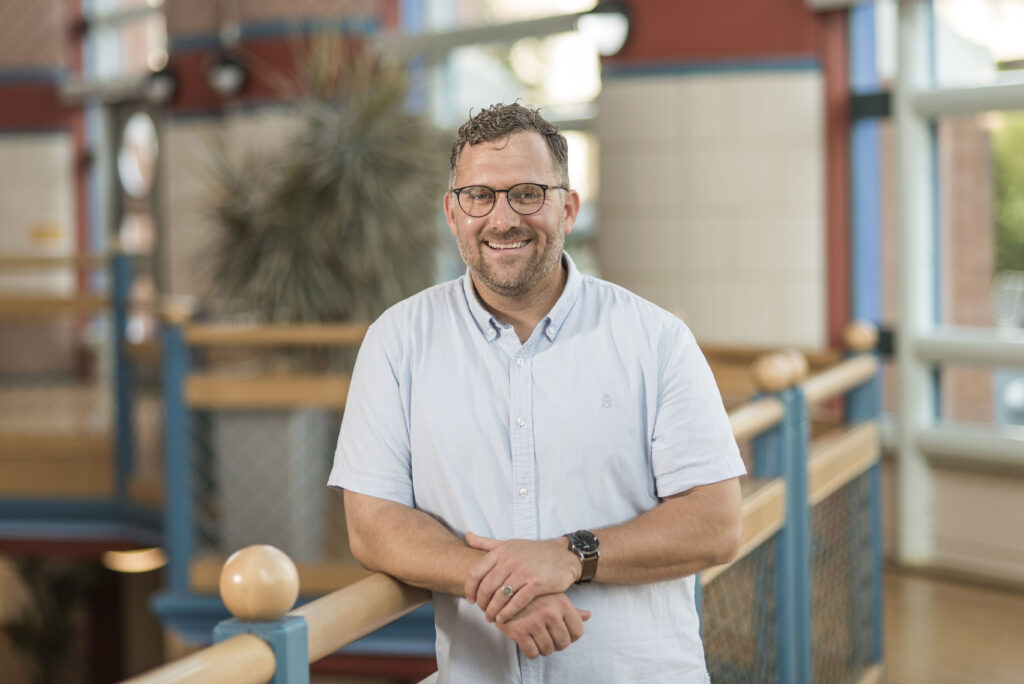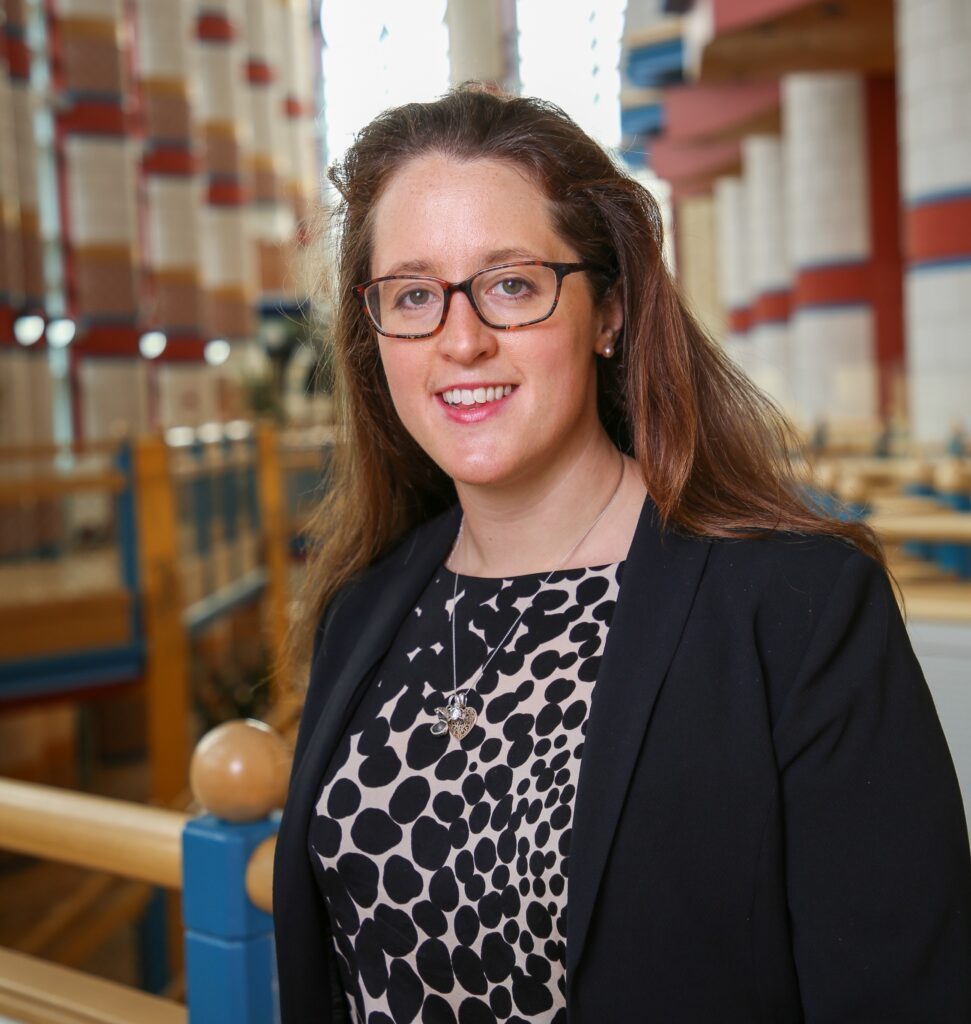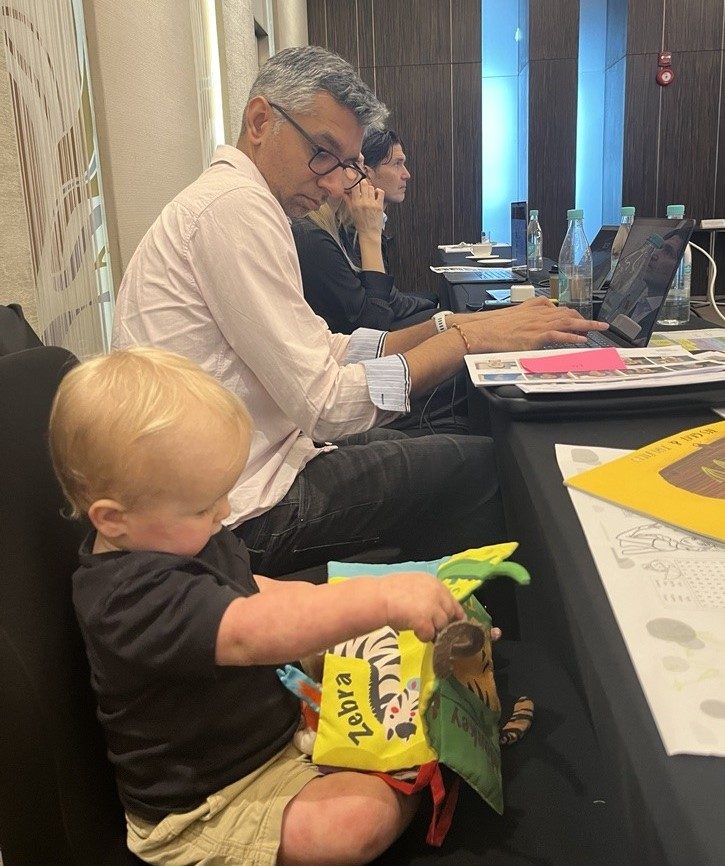Harriet Gray Stephens (EMBA 2021) and Matt Wunderli (EMBA 2023) share some of their experiences and insights about their International Business Study Trip (IBST) to Vietnam.
The International Business Study Trip (IBST) combines formal lectures, case studies, and structured discussions with local practitioners, experts and on-site visits. The class meets local business leaders and government officials, and visits leading domestic and international organisations to understand at first-hand the varied responses to globalisation.
The highlights of our IBST

There were so many highlights! It’s difficult to narrow them down but, for Matt, the opportunity to connect with all his classmates was the clear winner. As the cohort is separated into 2 streams in Cambridge, he has sometimes found forging connections challenging. Vietnam provided the perfect setting to come together with all the cohort and spend quality time with fellow students he might not otherwise have engaged with one-to-one.
Matt stresses how the IBST delivered both academically and beyond the classroom. It’s no surprise that, with his fascination for macroeconomics, institutional dynamics and international trade, this module was an instant hit with him. Further highlights include exploring Ho Chi Minh City, visiting factories and companies, and thought-provoking guest lectures on private equity and diplomacy at the British Consulate.
For Harriet, the aspects that really stood out are the talks by Tuyet Vu (Senior Advisor to the Minister of Planning & Investment, Vietnam, and Advisor to Vertex Ventures) and Vincent Mourou (Founder of Maison Mourou). Harriet was impressed with their motivation, remarking on their amazing career stories and achievements. She continues, “Vincent provided some incredible entrepreneurial learning points, which complimented similar learnings during the EMBA and have further motivated me to investigate entrepreneurship options. Tuyet Vu is a truly inspirational female leader who gave some interesting insights into her consulting career and business challenges at a national level, as well as her personal experiences.”
What we learned about the Vietnamese business culture

Harriet was fascinated with how business is done in Vietnam, learning that “Vietnamese culture respects traditional values that extend beyond business culture alone. This includes a strong respect for tradition, relationship hierarchies and the importance of etiquette. Relationship building is crucial in Vietnamese business culture; before getting down to business, it’s important to take time to establish personal connections and develop trust.”
She continues, “With particular relevance to business culture, we witnessed firsthand the importance of ‘mặt’ or ‘face’. Preserving face (both your own and that of others) is essential and includes avoiding confrontation. This was particularly evident in open discussions where the language barrier made business communication more difficult and led to indirect communication. To avoid embarrassment or loss of face, individuals did not query the question being asked. This resulted in ambiguity and a reluctance to give a direct answer, particularly in situations where the response might cause discomfort or conflict.”
Matt, on the other hand, was impressed by Vietnam’s entrepreneurial spirit. He sees Vietnam as fuelled by ambition and an insatiable hunger for progress. This drive is palpable in the remarkable surge across multiple fronts: manufacturing, technology, and agriculture exports.
How the IBST has impacted us personally
Both Matt and Harriet were fascinated by the entrepreneurial culture they found in Vietnam. The IBST gave Matt a firsthand look at how companies operate and what drives entrepreneurship in Vietnam, also making him curious about how he could one day do business there.
Harriet is also motivated to look at entrepreneurial opportunities and is now less afraid of the unknown. The IBST has helped her to shift from a UK-centric to a global perspective. It has enhanced her cultural intelligence, including encouraging her to explore opportunities for personal and professional growth outside the UK whilst leveraging her strong Cambridge-based network.
Our key takeaways from the IBST
Matt sees “Vietnam as an increasingly important country in the region and a serious alternative to companies looking to diversify their manufacturing, i.e. from China. The Vietnamese are taking that role seriously and are ostensibly investing in infrastructure, education, and labour to compete on a global scale.”
Harriet highlights the insights she has gained into global market trends, opportunities, and challenges. This firsthand exposure has helped her to develop a more nuanced understanding of Asian markets. Visiting innovative companies, in particularly Maison Marou and FTP Software, has made her reflect on alternative business models and strategies.
Applauding the EMBA team for encouraging diversity

Harriet, a member of the 2021 cohort, travelled to Vietnam with her partner and 14-month-old son, Dougie. As Dougie was born when Harriet was studying on the EMBA programme, she wasn’t able to join the IBST with her own cohort. For Harriet, the IBST represents the culmination of 3 years of inspirational teaching and learning. She says that the IBST and the EMBA programme as a whole has had “a transformative impact on both a professional and a personal level, equipping me with the skills, knowledge, and confidence that I need to excel both within my career and broader professional development.” She’d like to say a huge thanks to the whole EMBA team for their support and for going above and beyond to ensure that, although travelling with her son, she could still participate fully in the learning and networking opportunities during the IBST.


Leave a Reply